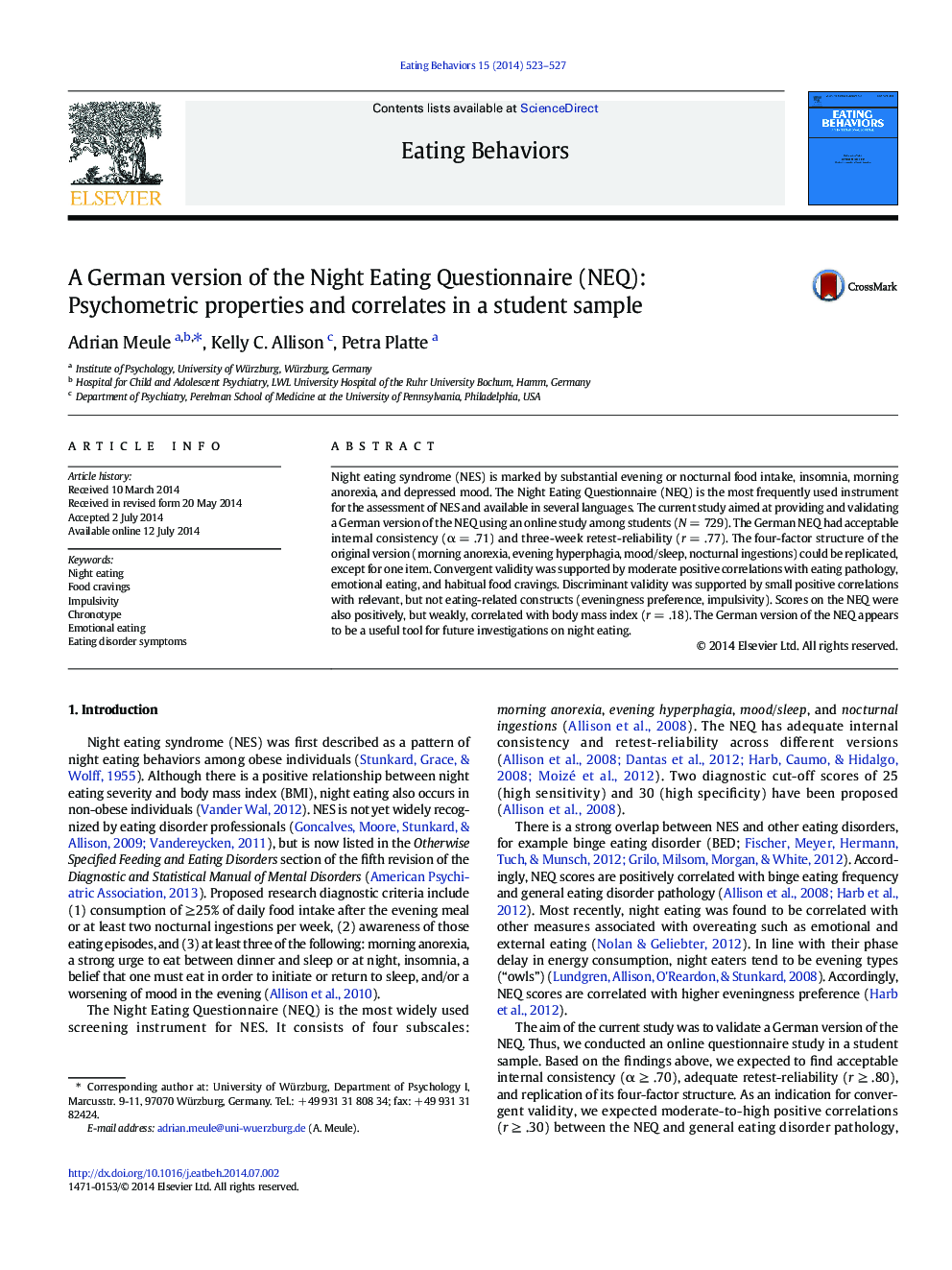| Article ID | Journal | Published Year | Pages | File Type |
|---|---|---|---|---|
| 10446853 | Eating Behaviors | 2014 | 5 Pages |
Abstract
Night eating syndrome (NES) is marked by substantial evening or nocturnal food intake, insomnia, morning anorexia, and depressed mood. The Night Eating Questionnaire (NEQ) is the most frequently used instrument for the assessment of NES and available in several languages. The current study aimed at providing and validating a German version of the NEQ using an online study among students (N = 729). The German NEQ had acceptable internal consistency (α = .71) and three-week retest-reliability (r = .77). The four-factor structure of the original version (morning anorexia, evening hyperphagia, mood/sleep, nocturnal ingestions) could be replicated, except for one item. Convergent validity was supported by moderate positive correlations with eating pathology, emotional eating, and habitual food cravings. Discriminant validity was supported by small positive correlations with relevant, but not eating-related constructs (eveningness preference, impulsivity). Scores on the NEQ were also positively, but weakly, correlated with body mass index (r = .18). The German version of the NEQ appears to be a useful tool for future investigations on night eating.
Related Topics
Life Sciences
Neuroscience
Behavioral Neuroscience
Authors
Adrian Meule, Kelly C. Allison, Petra Platte,
